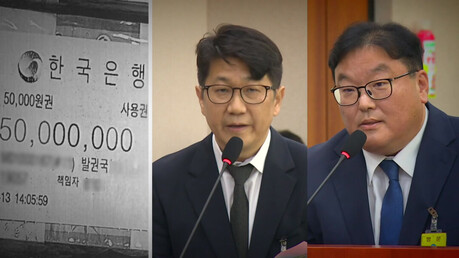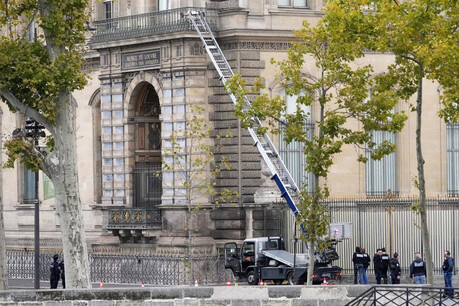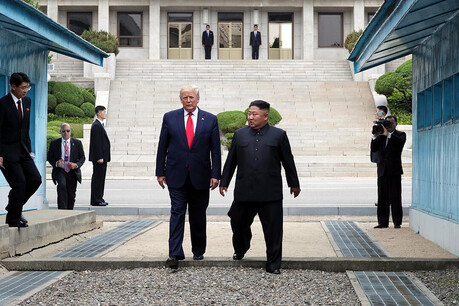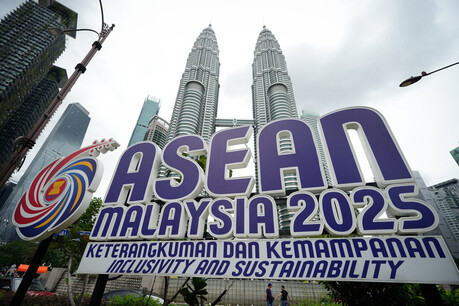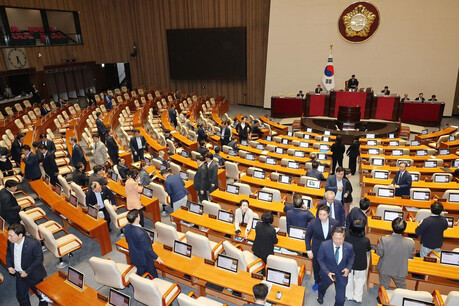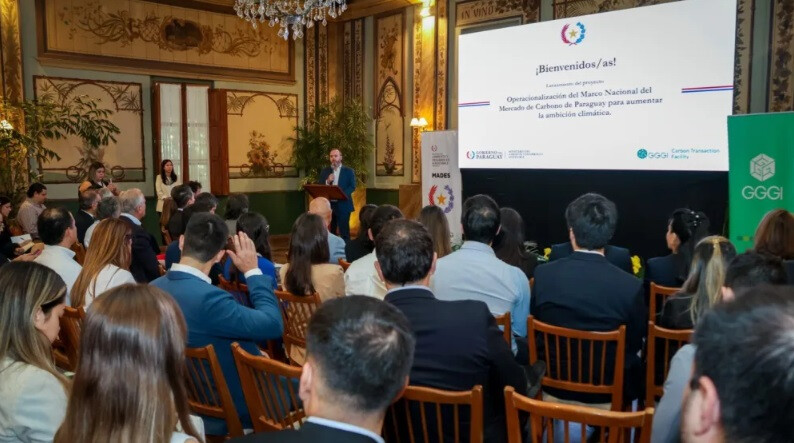
Asunción, Paraguay – Paraguay has announced significant strides in its commitment to establishing a robust and transparent carbon emissions trading market, aiming to attract international investment and foster sustainable economic development.
The Ministry of Environment and Sustainable Development (MADES) recently convened a meeting of government officials, representatives from international organizations, the private sector, and civil society to unveil its accelerated plan for carbon market development. In a statement, MADES emphasized that this initiative, supported by the Carbon Transaction Facility (CTF), will contribute to the Paraguayan government's implementation of a solid domestic carbon market in line with Article 6 of the Paris Agreement. The ministry further stated that this market is expected to benefit the Paraguayan economy while simultaneously supporting sustainable growth.
According to MADES, Paraguay laid the groundwork for carbon emissions trading with the enactment of Law No. 7190 in 2023. This was followed by the approval of implementing regulations in February 2025, which led to the creation of a National Carbon Market Authority and the launch of a carbon credit registry system.
"Through this project, we will build and strengthen institutional and governance capacities and develop monitoring mechanisms to ensure the effective operation of the market," MADES affirmed.
Paraguay's envisioned carbon market aims to encourage economic diversification and provide financial incentives for carbon reduction activities. It is also anticipated to promote the adoption and dissemination of low-carbon technologies and generate funding opportunities for environmental initiatives and projects that benefit society as a whole.
Víctor González, Director of the Carbon Market at MADES, hailed the project launch as "an important milestone in Paraguay's strategy to strengthen its carbon market and attract international climate finance." He added, "Through this initiative, we seek to establish tools that provide economic incentives for activities that promote the sustainable development of our country."
Aron Dreyer, Deputy Director of Carbon Pricing at the Global Green Growth Institute (GGGI), stated, "With this new project, Paraguay will position itself as a strategic player in the international carbon market under Article 6 of the Paris Agreement. Our goal is to build a carbon market that complements Paraguay's productive activities while simultaneously creating new opportunities."
Over the coming months, the project will focus on developing the regulatory framework, educating key stakeholders, and establishing monitoring mechanisms to ensure Paraguay meets its climate commitments and that the market functions smoothly.
The launch event was attended by approximately 50 individuals, including government authorities, representatives from international organizations, private sector actors, and civil society members. A significant announcement was the establishment of an inter-ministerial committee that will serve as the governing body for the implementation of the carbon market. This committee will comprise representatives from MADES, the Ministry of Economy and Finance (MEF), the Ministry of Foreign Affairs (MRE), and the Ministry of Industry and Commerce (MIC).
Understanding Carbon Markets:
Carbon markets are created through international agreements and the participation of nations, corporations, and citizens, with the overarching goal of reducing greenhouse gas emissions.
In essence, companies with high carbon footprints or significant greenhouse gas emissions purchase carbon credits to offset their emissions and project a greener image to consumers.
A primary concern among environmental activists revolves around control systems, as many companies reportedly buy credits without verifying if the issuing entities have genuinely prevented deforestation.
Concerns also exist regarding the impact of production system changes on developing countries, which often have lower industrialization levels and carbon emissions but rely heavily on raw material exports as a primary source of income.
Paraguay's MADES faces challenges with budget limitations and a lack of sufficient monitoring personnel and technology.
A recent report by a UN Special Rapporteur highlighted that the expansion of soy cultivation in Paraguay has the most significant impact on rural communities and ecosystems, contributing to deforestation and displacement due to the use of pesticides banned in the European Union.
GGGI Presents a Green Growth Model:
The Global Green Growth Institute (GGGI) was established as a treaty-based international intergovernmental organization at the United Nations Conference on Sustainable Development in 2012. GGGI's mission is to support its member countries in transitioning to a green growth model that combines poverty reduction, social inclusion, environmental sustainability, and economic growth.
GGGI's Solution: The Carbon Transaction Facility (CTF):
The Carbon Transaction Facility (CTF) is GGGI's solution for unlocking global carbon markets under Article 6 of the Paris Agreement. The CTF's first pillar, the Article 6 Readiness Mechanism, aims to support GGGI member and partner countries in maximizing the potential of these markets.
The second pillar, the Carbon Fund, focuses on facilitating the establishment of transactions under Article 6.
The CTF receives funding and support from the New Zealand Ministry of Foreign Affairs and Trade, the Norwegian Ministry of Climate and Environment, and the Swedish Energy Agency.
Currently, GGGI has 49 member countries and 29 partner countries and regional integration organizations, implementing programs and projects in over 51 countries. These initiatives include developing innovative green growth solutions, providing technical assistance, capacity building, policy planning and implementation, and structuring and mobilizing finance for sustainable investment projects.
[Copyright (c) Global Economic Times. All Rights Reserved.]
















